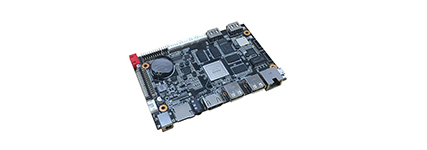
In a world where over 90% of businesses rely on embedded systems, the emergence of fanless embedded box computers has become a pivotal trend. These devices not only promise enhanced performance and reliability but also navigate complex legal frameworks with remarkable ease.
The Legal Landscape Surrounding Fanless Embedded Box Computers
Fanless embedded box computers are designed to operate without traditional cooling fans, which significantly reduces their susceptibility to dust and mechanical failure. From a legal perspective, these devices must comply with various regulations concerning safety, electromagnetic compatibility (EMC), and environmental impact. Additionally, as global trade policies evolve, manufacturers must consider tariffs that could affect the importation of components used in these systems. Understanding these regulatory requirements is crucial for companies looking to leverage fanless technology while remaining compliant.
Find more about intel embedded pc.
Intel Embedded PC: Trade Policies and Tariffs Implications
The Intel embedded PC segment faces unique challenges under current trade policies and tariffs. As one of the leading suppliers in this market, Intel’s products are subject to scrutiny regarding compliance with international standards such as RoHS (Restriction of Hazardous Substances) and WEEE (Waste Electrical and Electronic Equipment). Furthermore, fluctuations in tariff rates can influence pricing strategies for manufacturers who depend on imported components from countries affected by trade disputes. This necessitates careful planning to mitigate potential cost increases associated with tariffs imposed on electronic goods.
ShareVDI: Characteristics Under Trade Policies and Tariffs
- Compliance Requirements: ShareVDI solutions must adhere to strict data protection laws across different jurisdictions when deployed within fanless embedded systems.
- Tariff Impacts: The software’s reliance on hardware sourced globally means that any changes in tariff structures can directly affect operational costs.
- Sustainability Standards: With increasing emphasis on eco-friendly practices, ShareVDI needs to align its offerings with sustainability regulations that may vary by region.
- Cross-Border Data Flow Regulations: As cloud-based services grow more prevalent alongside fanless technologies, navigating cross-border data flow restrictions becomes essential for compliance.
A Conclusive Overview

The landscape surrounding fanless embedded box computers is intricately tied to evolving trade policies and tariffs. Manufacturers must remain vigilant about compliance issues related to safety standards while adapting their strategies according to fluctuating tariff rates affecting component sourcing. By understanding these dynamics thoroughly, stakeholders can better position themselves within this rapidly advancing technological arena.
Click sharevdi.
